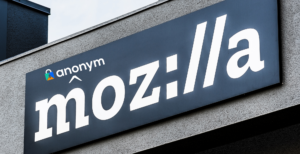Another Cannes Lions is almost behind us. The senior advertising execs who convened on La Croisette confidently shared their visions for the future of transparency, AI, attention, identity, privacy and curated marketplaces.
I have been writing about these topics for AdExchanger for years and have sometimes been considered naïve and utopian for pushing for change in digital advertising. It’s nice to see so much of the industry join the cause.
But here’s the cold truth: Many industry leaders conveniently buried these topics until they served their agendas.
There are two major motivators behind the current popularity of these themes.
The main factor, and the one that I hope motivates the majority of us, is an honest drive to build a better digital advertising industry and provide real value to audiences and advertisers while media owners regain self-sustainability.
The other driver is more self-serving: Some programmatic vendors are engaging in “transparency-washing.” Pushing for more transparency is just a way for these vendors to change the narrative in an attempt to stay relevant.
Today, everybody is a transparency advocate. Every ad tech company is launching a curated marketplace. Attention is sold as a new and innovative metric. And these solutions are being championed by many industry stalwarts who, until yesterday, were obsessed with cheap reach and couldn’t care less about engagement.
Nevertheless, we should not let cynicism blind us. Many in this industry truly want to do better. But there are imminent obstacles that need to be tackled if we want to move from words to deeds.
Ending the charade
Our first challenge is to fend off those trying to shoehorn transparency, attention, accountability, etc., into digital advertising’s old schemes.
The first-party web should be about serving ads in quality media environments from which the occasional rotten element can be easily identified and weeded out. But some companies are terrified of what will happen to their business models if media alliances and curated marketplaces take hold.
We need to come to terms with the fact that the open programmatic marketplace is not where serious advertisers and agencies buy ads, nor where reputable media owners sell their inventory.
The withdrawal of high-quality media from the open exchange is the inevitable result of how the system is set up, no matter the intentions of its participants. There will always be bad actors looking to take advantage of marketers buying unaccountable inventory at the lowest possible price using automated systems. And premium media brands aren’t interested in a daily fight for survival as they compete with less reputable sites for ad budgets.
Still, too many advertisers believe (or are led to believe) that building an environment based on mutually rewarding partnerships with high-quality publishers will be too complicated and therefore not worth the effort.
Instead, they insist on hunting relatively scarce quality across millions of websites, jumping through endless hoops (with associated costs) to find the audiences they want.
All the while, the status quo persists. And our thought leaders continue to talk, either out of conviction or convenient posture, about the lack of transparency and quality in the supply chain.
We have to change this mindset if we want to build a better online ecosystem for media buyers and sellers, as well as the audiences we all rely on.
Change requires action
However, there cannot be real change in the industry, nor widespread adoption of new ethics and vision, without individual companies undergoing an internal alignment and business transformation.
What will make Cannes Lions 2024 a success is what happens on Monday, June 24, when everyone is back in the office.
As an independent consultant, I regularly see a gap between what the average C-suite believes in and the way they run their organizations.
Most senior managers are quite clued in on what needs to be done to move their businesses forward. But then, when you talk to their teams, you start to feel the competing forces pulling in opposite directions.
The high-minded theories the people at the top are preaching are not reflected in the way processes are set up and employees are incentivized and rewarded. This is why the industry’s public rhetoric feels so disconnected from actual reality.
Instead, the new vision must be baked into a company’s internal objectives and incentives.
And effective outcomes cannot be achieved if only pockets of the industry are embracing change.
Digital advertising is an ecosystem. It requires balance and alignment of agendas. And none of the topics that take center stage in Cannes and at similar events are plug-and-play. They require a cultural and professional foundation and a supporting structure of first-party relationships.
The conversation, as it does every year, crests along La Croisette’s beaches. We need to make sure those words weren’t washed away by the waves of the Mediterranean.
“The Sell Sider” is a column written by the sell side of the digital media community.
Follow Alessandro De Zanche and AdExchanger on LinkedIn.
For more articles featuring Alessandro De Zanche, click here.














